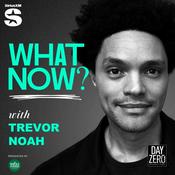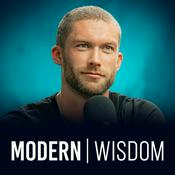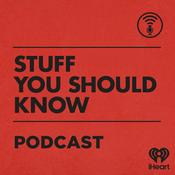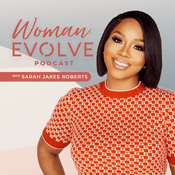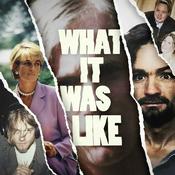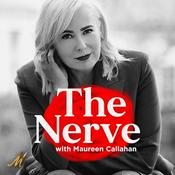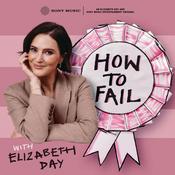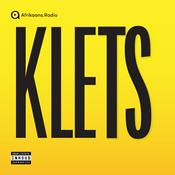279 episodes

Facial Distortions and Prosopometamorphopsia | Brad Duchaine (Rebroadcast)
2025/11/09 | 1h 1 mins.
In this special episode of Brain in a Vat, Brad Duchaine from the Psychological and Brain Sciences Department at Dartmouth discusses prosopometamorphopsia (PMO) – a condition where individuals see distorted faces.The episode explores various manifestations of PMO, including seeing demonic features, dragons, or entirely different faces, and distinguishes it from prosopagnosia (face blindness). It delves into the neurological basis of PMO, touching upon structural and functional differences in the brains of those affected.We discuss the significant impact PMO and prosopagnosia have on individuals' social interactions and quality of life, as well as potential management techniques such as using glasses or colored lights to reduce distortions.Chapters:[00:00] Introduction and Guest Presentation[00:20] Exploring the Case of Face Distortion[03:19] Understanding the Nature of Distortions[05:49] Comparing Prosopagnosia and PMO[07:17] The Role of Visual System in Face Recognition[10:01] Impact of Face Recognition on Social Interactions[14:16] The Spectrum of Face Recognition Abilities[16:20] The Role of AI and Hallucinations in Face Recognition[23:48] Understanding the Diagnosis of Face Recognition Disorders[30:20] Understanding Prosopagnosia: Prevalence and Characteristics[31:59] The Mystery of PMO: Prevalence and Need for More Research[32:46] Exploring the Impact of Prosopagnosia and PMO on Social and Sexual Relationships[33:23] The Intersection of PMO and Other Psychiatric Conditions[37:03] The Struggles and Challenges of Living with Prosopagnosia and PMO[41:02] Potential Treatments and Coping Mechanisms for PMO[51:22] The Neurological Basis of PMO and Prosopagnosia[54:51] Testing and Characterizing PMO: A Deep Dive into Research Methods[59:54] Understanding the Perception and Processing of Faces in PMO

Should We Stay or Should We Go | Lionel Shriver (Rebroadcast)
2025/11/02 | 55 mins.
When is death preferable to living? Are there fates worse than death? And what sort of future society should we build?Lionel Shriver discusses her latest novel, Should We Stay or Should We Go.

Parental Licensing | Connor Kianpour (Rebroadcast)
2025/10/26 | 1h 2 mins.
Should you be required to get a parental license from the State before you can raise your own children? Do the wishes of parents matter at all – or should we only care about the best interests of their children?

Can AI Bring Our Loved Ones Back? Inside Reflekta AI’s Digital Afterlife | Miles Spencer
2025/10/17 | 51 mins.
In this special episode of Brain in a Vat, we step outside our usual format to interview Miles Spencer, founder of Reflekta — a company using cutting-edge AI to recreate digital reflections of loved ones who’ve passed away.Miles shares his personal journey of using Reflekta to reconnect with his late father and explains how the system blends voice recordings, photos, and written biographies to create realistic digital personas. The discussion covers the emotional impact, ethical questions, and philosophical issues raised by this technology, from preserving family memories to reviving historical or fictional figures.We also consider what it means to build a living legacy in the age of AI, and how this might change the way we understand grief, identity, and memory.Chapters:[00:00] Introduction[00:15] Meet Miles Spencer, Founder of Reflector AI[03:07] How the Technology Works[07:12] Philosophical Implications of Digital Afterlife[15:29] Living Legacies and Ethical Boundaries[23:12] Historical and Public Figures[26:33] Family, Memory, and AI Elders[33:17] Reflections on “The Rehearsal” and Reality[42:31] Future Implications[47:54] Legacy, Spirit, and the Human Story[51:21] Closing Thoughts

Cultural Appropriation | Stephen Kershnar (Rebroadcast)
2025/9/30 | 51 mins.
Is it permissible for members of one group to appropriate the cultural practices of another? Is there anything wrong with cultural appropriation at all, or are there benefits to cultural appropriation?
More Society & Culture podcasts
Trending Society & Culture podcasts
About Brain in a Vat
Listen to Brain in a Vat, What Now? with Trevor Noah and many other podcasts from around the world with the radio.net app
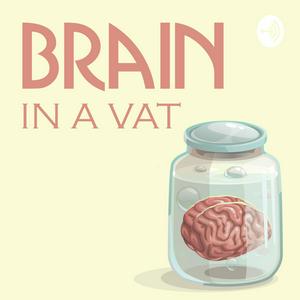
Get the free radio.net app
- Stations and podcasts to bookmark
- Stream via Wi-Fi or Bluetooth
- Supports Carplay & Android Auto
- Many other app features
Get the free radio.net app
- Stations and podcasts to bookmark
- Stream via Wi-Fi or Bluetooth
- Supports Carplay & Android Auto
- Many other app features


Brain in a Vat
download the app,
start listening.
